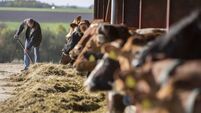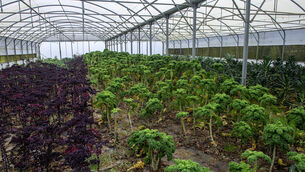'Enormous black hole’ in fertiliser register plan

The bill will enable the Minister for Agriculture to capture and process information on the manufacture, import, sale, supply and use of fertiliser in the state, and to provide for the introduction of a National Fertiliser Database.
The ongoing ability of farmers to purchase fertiliser outside of the state is "an enormous black hole" in current plans for a fertiliser register, ICOS has warned.
Representatives of ICOS told the Oireachtas joint committee on agriculture, food and the marine last week that while there have been and continue to be “technical concerns regarding software systems and other practical matters”, the “most substantive issue with the current proposal for a register is the acknowledgement by the Department that the register will only apply to purchases of fertiliser made within the state”.











